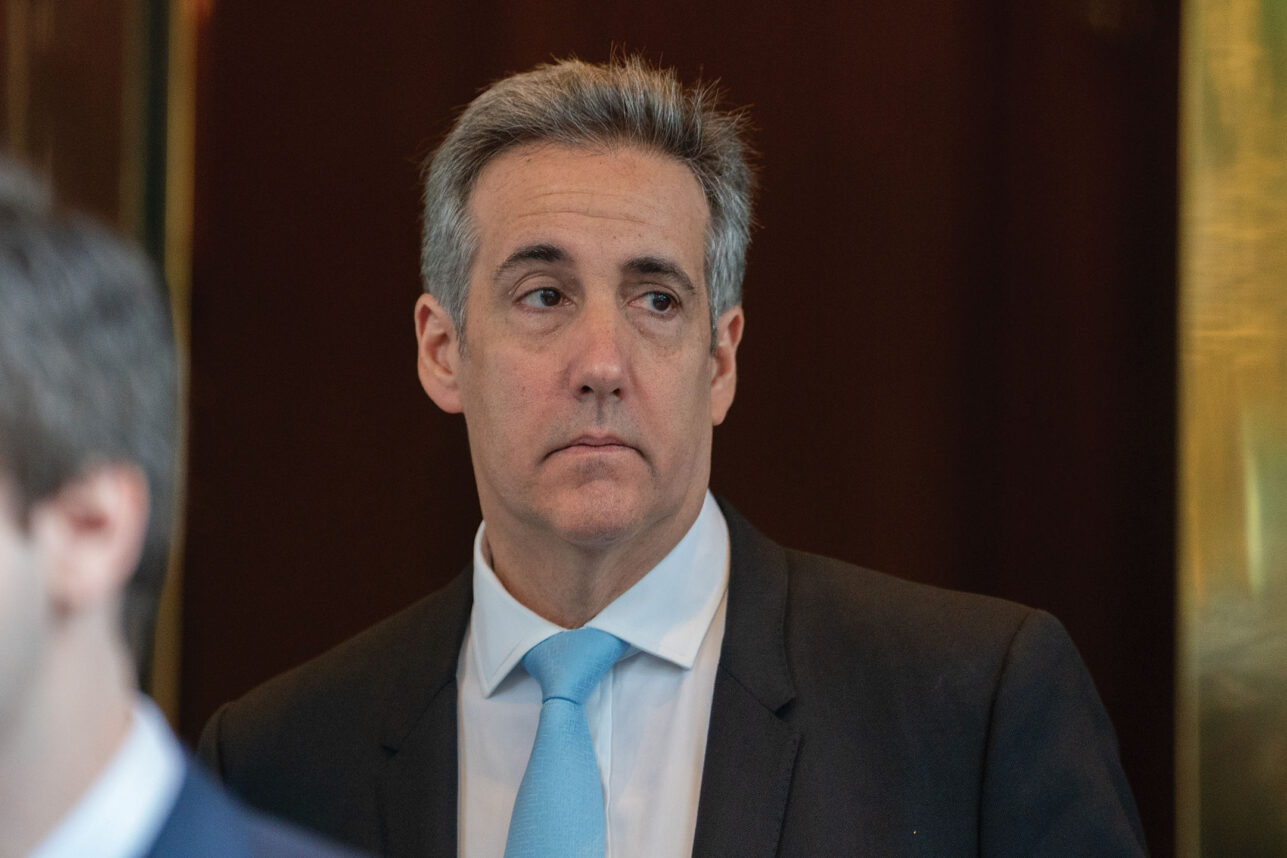Six films from Europe and the United States with Jewish or Israeli themes will open in U.S. theaters during the last half of October, most dealing with the triumphs and tragedies of our recent 20th century history. They are discussed here in order of their opening dates.
Over the past half century, the front-page trials of the world’s top terrorists, war criminals and genocidal dictators, among them Carlos the Jackal and Klaus Barbie, have had one common link — French defense attorney Jacques Verges.
A master of courtroom guerrilla tactics who defends Nazis, communists and murderers of Israelis with equal fervor, Verges and his assorted clients tell their stories in the fascinating documentary, “Terror’s Advocate.”
Verges, also nicknamed “the Devil’s Advocate” and a native of Thailand, was “born angry,” according to a friend. The attorney is the son of a Vietnamese mother and a father from the French Reunion Island in the Indian Ocean.
Now 82, Verges has perfected the technique of putting the prosecution on trial, as in the 1987 defense of Barbie, the Nazi “Butcher of Lyons.” To the charges of torture against Barbie, Verges counterattacked that the French had done worse in Algeria.
You are not likely to see any movie with more scary and bloody characters than those in “Terror’s Advocate.”
Opens Oct. 12 at Sunset 5 in West Hollywood and on Oct. 19 at Playhouse 7 in Pasadena.
“A Miracle in Cracow” and “Synagogue for Sale” are part of the seventh Hungarian Film Festival (Oct. 11-18), and both, in a sense, are expressions of the nostalgia brand of virtual Judaism flourishing in many parts of Europe, where the real Jews were exterminated.
“Miracle” is by far the more interesting of the two. At its center is Piotr, a young bookseller in Cracow, and Ezter, a young woman visiting from Budapest, who are both trying to recapture the world of their grandparents.
The past is embodied in a miraculous book, “The Silver Crown,” and in its pursuit they encounter surrealistic street fairs, the Cracow underworld, an abandoned cemetery and a wonder-working rabbi who can bring back the dead.
The film, in Hungarian, Polish, Yiddish and English, with subtitles, retains one reassuring and timeless touch when Piotr and Ezter fall in love.
“Synagogue” is a straightforward and rather unimaginative documentary on attempts to save an abandoned, 150-year-old synagogue from utter deterioration and collapse.
The crumbling edifice stands in Koszeg, a small Hungarian town near the Austrian border, whose 117 Jews were deported to Auschwitz in 1944.
Since then, the synagogue has been slowly falling apart, while various local entrepreneurs plan to put it to some commercial use, either as a store or a tourist attraction, while local and national bureaucrats bicker endlessly.
Unfortunately, the film is all about the building itself. We hear little, and see less, of the Jews who lived in Koszeg for centuries or their tragic end, even though touching photos are available on the Internet.
Both films, sponsored by local attorney Andrew Friedman, will be screened as double features at the Music Hall in Beverly Hills on Oct. 14 at 7 p.m. and Oct. 17 at 5 p.m. For information, phone (818) 848-5902.
“Golda’s Balcony” hews closely to William Gibson’s long-running Broadway play about Golda (Myerson) Meir, the girl from Milwaukee, as wife, kibbutz pioneer, labor leader and prime minister of Israel.
Valerie Harper portrays Golda, whom some contemporaries described as the only man in the Israeli Cabinet, as the formidable leader she was, without slighting the price she had to pay as a wife and mother.
The climax of her life and the film was the 1973 Yom Kippur War, when Israel came harrowingly close to being defeated by the combined Arab armies.
Rarely have the agonies of leadership been better portrayed as Golda weighs whether, as a last desperate choice, Israel should drop its nuclear bombs on Cairo and Damascus.
Whether she really ever intended to do so is still a matter of debate, but the mere threat was enough to persuade (Henry Kissinger used the term “blackmail”) President Nixon and his secretary of state to rush munitions and aircraft to the Israeli forces.
Harper portrays not only Golda but also every other character she encounters, from her secretary to David Ben-Gurion to King Abdullah of Jordan.
Director Jeremy Kagan, an astute and sensitive filmmaker (“The Chosen” and “The Big Fix”) undoubtedly had a reason for this approach, but when Harper as Golda talks to Harper as King Abdullah face to face, things get a bit confusing.
“Golda’s Balcony” opens Oct. 19 at the Fallbrook 7 theater in West Hills, Music Hall in Beverly Hills and Regency South Coast in Santa Ana.
Ever since the publication in 1972 of “O Jerusalem” by Larry Collins and Dominique LaPierre, the hyperactive but fascinating history of Israel’s War of Independence, from the U.N. partition resolution in 1947 to the 1949 armistice, the book has defied all attempts to make it into a coherent movie.
French Jewish filmmaker Elie Chouraqui has now taken the gamble, with very mixed results. The film, like the book, does a fairly even-handed job of telling the story of those turbulent years from the Jewish, Arab and British perspectives, with the Brits usually ending up as the heavies.
The film tracks the major military and political actions of the war, including the battle for Latrun, when the desperate Israelis threw untrained refugees just off the ship into the fight, and the massacre of Arab villagers in Deir Yassin by the Irgun.
But the film’s fatal flaw lies in Chouraqui’s choice, as director and co-writer, to superimpose a completely preposterous storyline on the historical facts.
In his version, two New York buddies, the Jewish Bobby Goldman (JJ Feild) and the Arab Said Chahine (Said Taghmaout), decide separately to go to Palestine to fight on opposite sides. Not only do these two naifs become instant leaders in their respective armies, but, like Zelig, they show up in every battle and are privy to the confidences of kings and prime ministers.























 More news and opinions than at a Shabbat dinner, right in your inbox.
More news and opinions than at a Shabbat dinner, right in your inbox.